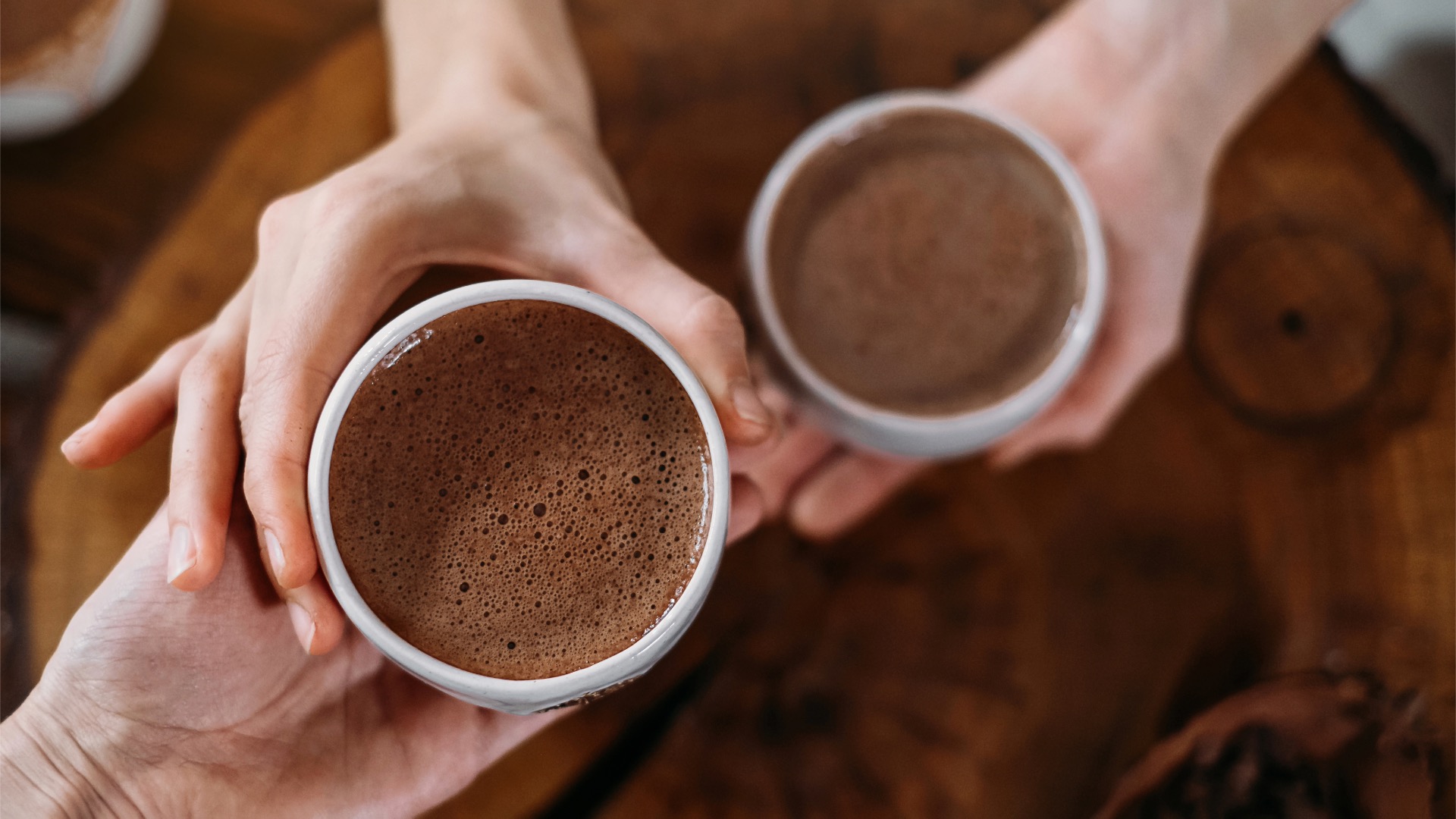Cacao has long been celebrated for its ability to boost mood and promote feelings of happiness and well-being. With its natural compounds that interact with the brain, some people wonder: Is cacao an antidepressant?
While cacao is not classified as a pharmaceutical antidepressant, it does contain properties that can enhance mood and support mental health. In this article, we’ll explore the science behind cacao’s mood-boosting effects, how it compares to traditional antidepressants, and how it can be a part of a holistic approach to mental wellness.
1. What Makes Cacao a Mood Booster?
Cacao contains several natural compounds that influence brain chemistry and promote a sense of well-being:
Phenylethylamine (PEA)
- Known as the “love chemical,” PEA naturally stimulates the release of dopamine, a neurotransmitter associated with pleasure and reward. Higher dopamine levels can improve mood and motivation.
Tryptophan
- Cacao is rich in tryptophan, an amino acid that serves as a precursor to serotonin, often called the “feel-good” neurotransmitter. Increased serotonin levels are linked to reduced symptoms of depression and improved emotional balance.
Anandamide
- Often referred to as the “bliss molecule,” anandamide is a neurotransmitter found in cacao that enhances feelings of happiness and relaxation. It also helps regulate mood and reduce stress.
Magnesium
- Cacao is one of the best plant-based sources of magnesium, a mineral that helps regulate the nervous system, reduce anxiety, and improve sleep—all factors that can influence mood.
2. Cacao vs. Antidepressant Medications
Cacao is not a replacement for prescription antidepressants, especially for those with moderate to severe depression. However, it can complement a mental health regimen in several ways:
How Antidepressants Work
- Pharmaceutical antidepressants, such as SSRIs (Selective Serotonin Reuptake Inhibitors), increase serotonin availability in the brain to alleviate symptoms of depression.
How Cacao Works
- Cacao naturally boosts serotonin, dopamine, and anandamide levels, providing similar mood-enhancing effects but on a gentler scale. It lacks the clinical potency of antidepressants but offers a natural and enjoyable way to support mental well-being.
3. Scientific Evidence Supporting Cacao’s Effects
Studies have highlighted cacao’s potential role in mental health:
- Flavonoids and Cognitive Function: Research shows that cacao’s flavonoids improve blood flow to the brain, enhancing cognitive function and emotional regulation.
- Mood and Stress Reduction: A 2013 study found that regular consumption of dark chocolate (rich in cacao) reduced stress hormones like cortisol in participants.
- Long-Term Benefits: Some studies suggest that cacao’s antioxidants may protect against age-related cognitive decline and promote long-term emotional health.
4. Cacao’s Role in Mindfulness and Ritual
Beyond its chemical properties, cacao is often consumed in ceremonial or mindful settings, which can amplify its antidepressant-like effects:
- Mindfulness: Drinking cacao with intention encourages presence and gratitude, helping to shift focus away from negative thoughts.
- Connection: Sharing cacao in ceremonies fosters a sense of community, which can alleviate feelings of loneliness or isolation.
- Reflection: The grounding nature of cacao supports self-reflection and emotional release, creating space for healing.
5. Who Can Benefit from Cacao?
Cacao may be particularly helpful for:
- Mild Depression or Low Mood: Cacao can serve as a natural mood booster for those experiencing occasional sadness or low energy.
- Stress Relief: Its calming and uplifting properties make cacao an excellent choice for managing stress.
- Emotional Balance: Regular consumption can promote a sense of equilibrium, helping to navigate life’s challenges with greater resilience.
6. How to Incorporate Cacao for Mental Wellness
If you’d like to explore cacao as part of your mental health toolkit, here are some tips:
- Use Ceremonial-Grade Cacao
- Choose minimally processed cacao for maximum nutrient retention and mood-enhancing effects.
- Create a Ritual
- Prepare cacao mindfully, setting intentions and creating a calm environment for consumption.
- Pair with Mindful Practices
- Combine cacao with meditation, journaling, or yoga to amplify its benefits.
- Start with a Small Dose
- A serving size of 20–30 grams is usually sufficient to enjoy its effects without overstimulation.
7. Precautions and Limitations
While cacao has mood-enhancing properties, it’s important to recognize its limitations:
- Not a Cure for Depression: Cacao is not a substitute for professional treatment, especially for clinical depression.
- Interactions with Medications: If you’re taking antidepressants, consult your healthcare provider before adding cacao to your diet, as it may interact with medications like MAOIs or SSRIs.
- Sensitivity to Stimulants: Some individuals may experience restlessness or nausea due to cacao’s theobromine content.
Final Thoughts
Cacao is not a pharmaceutical antidepressant, but its natural compounds, combined with mindful consumption, can support emotional well-being and enhance mood. By boosting serotonin, dopamine, and anandamide levels, cacao offers a natural, heart-opening way to bring more joy, connection, and mindfulness into your life.
At School of Cacao, we are passionate about sharing the transformative power of cacao. Our ceremonial-grade cacao is ethically sourced and designed to nourish both body and soul, making it a wonderful addition to your mental wellness journey.
Have you experienced the mood-boosting effects of cacao? Share your story in the comments below!

